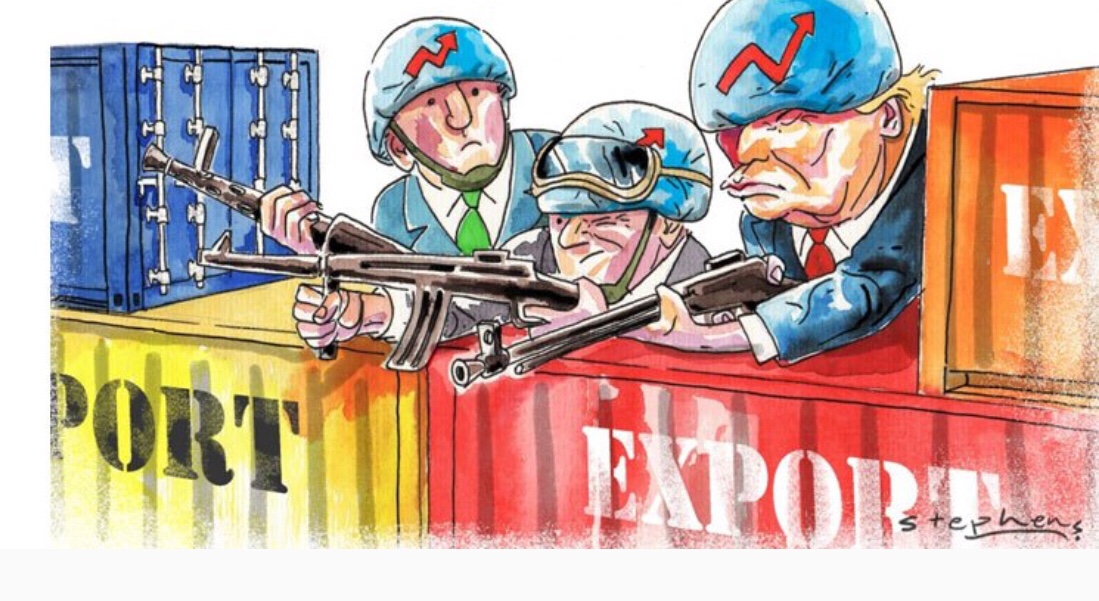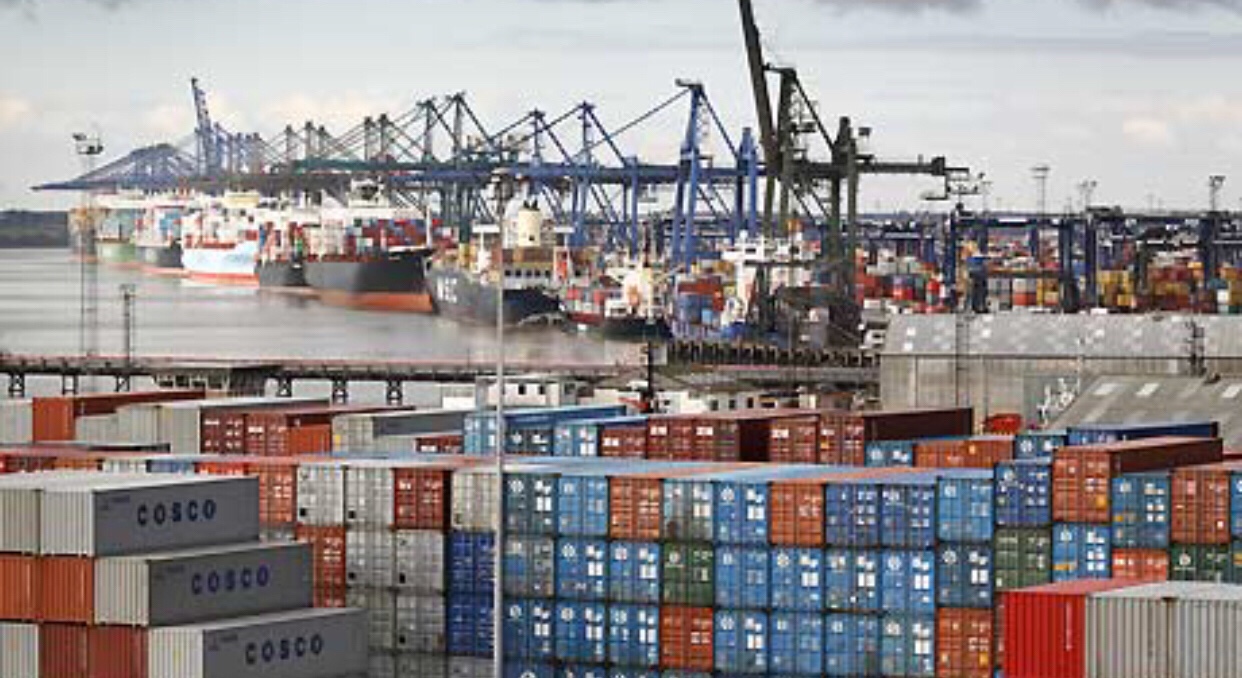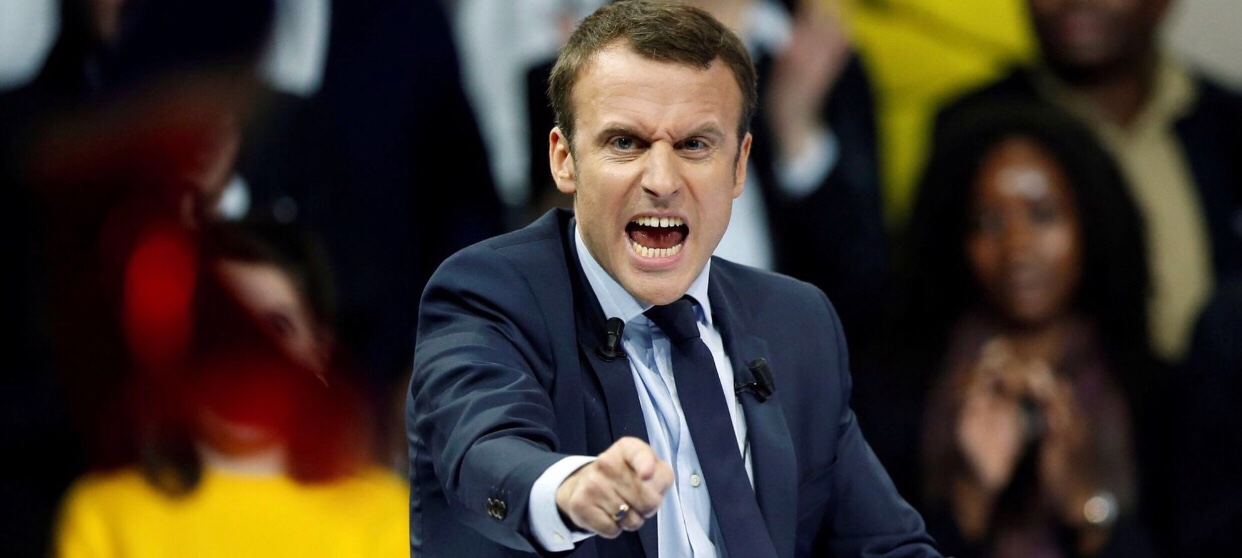The UK must submit written proposals on how it plans to keep a frictionless Irish border after Brexit in the next two weeks, Ireland’s foreign minister has said.
Simon Coveney said if that does not happen the UK will face an uncertain summer of talks.

Both the UK and EU say they are committed to keeping the Irish border open after Brexit.
However, a practical solution has not been agreed.
The EU and Ireland both insist Britain’s withdrawal treaty must lock in a backstop arrangement guaranteeing Northern Ireland will abide by EU regulations in case a future trade pact does not remove the need for border controls.
Britain has signed up to this, but has rejected the EU’s interpretation of what the backstop means.
“In the next two weeks, we need to see written proposals, it needs to happen two weeks from the summit,” Mr Coveney told the Irish Times newspaper, referring to a June summit of EU leaders that is supposed to mark significant progress on the issue.
“If there is no progress on the backstop, we are in for an uncertain summer.
“At this point we need written proposals on the Irish backstop consistent with what was agreed. We await written proposals from the British side.”
In February, the EU proposed a backstop which would involve the UK, in respect of Northern Ireland, maintaining full alignment with those rules of the EU’s single market and customs union which support north-south cooperation.
Prime Minister Theresa May said she could never agree to that as it would “threaten the constitutional integrity of the UK by creating a customs and regulatory border down the Irish Sea”.
Source: BBC
Does a trade war have any winners? Not really. There are no good examples in modern history that protectionism over time is a successful instrument. In fact we know that trade is the driver of development, the engine making our societies better.

So why do we see an emerging trade war on the horizon? Why did it start at midnight last night?
Experts are puzzled. All advisors on these matters should know better and probably does. But what happens if decision makers don’t listen to advisors? Maybe this is the answer.
So is international trade fair and balanced? No, it is not. Is there any merit to the accusations of an unbalanced trade? Yes, there is.
However, it is really not a trade balance challenge in developed countries that had been amd is the problem with international trade. We have all in the western world lived extremely well on trade for many decades. It was developing countries limited access to the global arena that was the real challenge.
Especially the emerging economies have suffered under the oresent system, not the leading western world that to dlme extent now is questioning the system.
The international trade system has a lot problems – but it is best system we have.
So let’s change what is not working instead of trying to ruin and bring chaos into the best hope we have for a safer, more equal, fair and better world. This is also what Christine Legarde Managing Director of the International Monotary Fund (IMF) has spoken about lately. Don’t fix what isn’t broken. Don’t walk away from a bridge between North and South, East and West – rich and poor. Fix what needs to be fixed instead.
The recent measures are also even worse when taking into account the historical opportunity the world had when the World Trade Organization (WTO) Director General Roberto Azevedo managed to push through the Trade Facilitation Agreement (TFA) in 2015/2016. We are about to waste the biggest breakthrough for international trade ever – due to populism! This need to stop.
It is time to solve and re-solve this issue once and for all. Let us not go down in history as the generation who really had the chance to change the world – and didn’t do it.
EU opens WTO case against Trump steel and aluminium tariffs. Dispute settlement case lodged but EU stops short of applying retaliatory tariffs.
The European Union is pressing ahead with countermeasures in response to what it said was Donald Trump’s “pure protectionist” and “illegal” decision to impose trade tariffs on steel and aluminium.

The EU has opened a case at the World Trade Organization after the US imposition of a 25% duty on European steel and a 10% duty on European aluminium came into force on Friday morning.
“We are not in a trade war, but we are in a very difficult situation,” said Cecilia Malmström, the EU trade commissioner. “I would not use the term trade war because it has a psychological effect, but the situation is worrying … the US is playing a dangerous game here.”
She said the US claim that the tariffs were needed for internal security, amounted to “pure protectionism”.
The EU has not made final decisions on tit-for-tat measures on US products, although it has a list, including classic Anerican products to hit with retaliatory tariffs, such as Levi’s jeans, bourbon whiskey, cranberries and peanut butter.
The European Commission needed to consult with member state diplomats before announcing the list. “We have not made final decisions on it, but we will use that list of course, but we need to respond and we need to do so in a measured manner.”
“The European Union will today proceed with the WTO dispute settlement case adding those additional duties on a number of imports from the United States,” Federica Mogherini, the EU high representative on foreign policy, told journalists on Friday. “The European Union measures will be reasonable, proportionate and in full compliance with WTO rules and obligations.”

She was the latest European politician to hit back at the US decision, which has been described by the French president, Emmanuel Macron, as a mistake and the UK’s international trade secretary, Liam Fox, as “patently absurd”.
Germany’s economy minister Peter Altmaier said on Friday: “We hope that the European response will result in a process of reflection in the USA.” He told the German broadcaster ARD that the EU may consider working on trade with Mexico and Canada, which were also hit by the US tariffs.
Bernd Lange, the German socialist MEP who chairs the European parliament’s international trade committee, said the tariffs were illegal and insisted the EU would put countermeasures in place. “We chose also some symbolic products like Harley-Davidson to make clear here is a red card,” he said.
Seeking to dial down the rhetoric, Mogherini said: “The European Union is not at war with anyone. We don’t want to be; for us this out of the question … The European Union is a peace project, including on trade.”
She said the EU believed in free and fair trade and “that is why we are multiplying the trade agreements with our partners in the world”.
The EU recently announced the formal launch of tradevtalks woth Australia and last year completed negotiations with Japan.
She was speaking alongside China’s foreign affairs minister, Wang Yi, who said China and the EU were committed to a rules-based, multilateral global system. The pair were also discussing Iran and North Korea before an EU-China summit in Beijing next month.
Beyond the warm words, Brussels and Beijing remain at odds over the heavily subsidised Chinese steel that has depressed global prices. Mogherini acknowledged that “we have some issues” and the EU would continue to address the problem of overcapacity with China.
Anthony Scaramucci, a former White House communications director, said there was always room to negotiate with Trump, but he was unlikely to be flattered into changing his mind.
Speaking on BBC Radio 4’s Today programme, Scaramucci, a personal friend of Trump, said the tariffs were a measure to correct the “uneven and unbalanced” trade system.
“I am sure that there are chips on both sides that can get traded to make the problem go away,” he said. “There’s always room in a negotiation with him, but he’s also the type of person that will walk from a negotiation.”
Source: The Guardian






You must be logged in to post a comment.